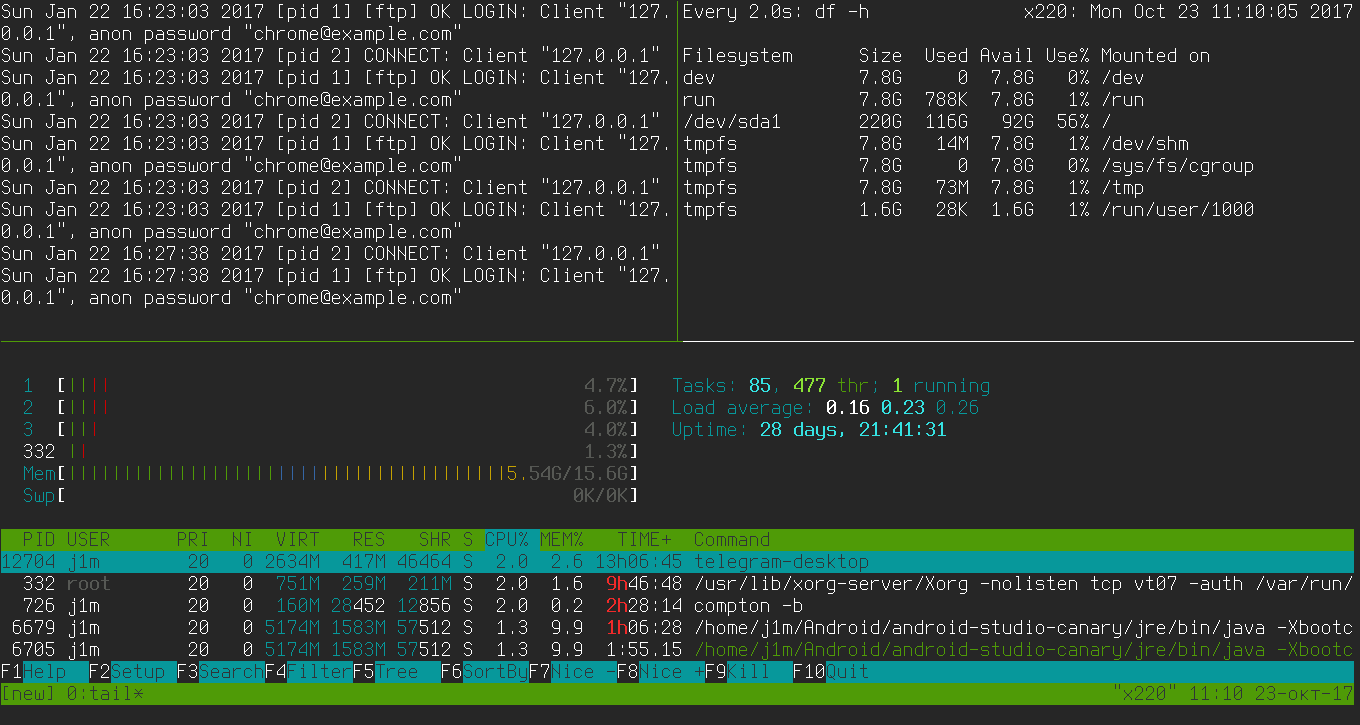
- TMUXINATOR LAYOUT OPTIONS HOW TO
- TMUXINATOR LAYOUT OPTIONS FULL
- TMUXINATOR LAYOUT OPTIONS SOFTWARE
- TMUXINATOR LAYOUT OPTIONS MAC
- TMUXINATOR LAYOUT OPTIONS WINDOWS
in a different context but still within the same project). When do I see fit to create new windows? Whenever I’m doing something in my current project which lives far away from what I’m working on right now (i.e.
TMUXINATOR LAYOUT OPTIONS WINDOWS
I then start coding, click, clap, clickity, clap, and I’ll create additional windows and panes as I see fit. I now create as many panes as I need, typically three with vim in the main terminal and two other terminals for running ad-hoc processes, like interacting with source control, running tests, a web server, etc… This creates a (named) session called new-project and opens that session. I’ll always start a new project by creating a new tmux session: Then let’s say that I’m starting a new project. First things first, one grabs a coffee, magic drink with great invigorating powers to the master of the arcane wizardry arts of coding. This is a how a typical day in the life of a tmux-using developer looks like. Just type prefix :list-commands and scroll up/down or use the /pattern to search for a keyword that represents that you want to achieve.
TMUXINATOR LAYOUT OPTIONS HOW TO

TMUXINATOR LAYOUT OPTIONS FULL
To run a full tmux command you type prefix : to jump between panes These key combinations above are shortcuts that correspond to more lengthy tmux commands. Do that and enjoy having one of the most common keys in coding at the tip of your fingers. One of my top productivity tips for coding is to remap your Caps Lock key to Control. The special key combination is typically referred to as prefix and it defaults to C-b (as in keep CTRL pressed while you type b).įor example, you can type prefix + % to split a window vertically (creating an additional pane to the right), prefix + " to split a window horizontally (creating an additional pane below) and prefix + c to create a new window. When you want to communicate with tmux (as opposed to the terminal within the active pane) you use a special (magic) key combination that tells tmux to handle whatever comes next. Inside a session you can create new windows and panes at will. Each pane has its own isolated terminal running within it. You create an anonymous session with one window and one pane.
TMUXINATOR LAYOUT OPTIONS MAC
If you’re using a Mac the nicest way to intall tmux is using homebrew: In this article you’ll learn how to setup and use tmux to improve your development workflow, I’ll guide you step by step, from installing, to configuring and I’ll even show you my favorite features and how I take advantage of tmux in my day to day coding. It has no equal when it comes to the art of managing terminals effectively. If you're not a Vim user you can still take a lot of good use out of tmux. If you're a Vim user and aren't using tmux at the moment, you're in for a treat, because Vim + tmux provides an amazing development experience.

TMUXINATOR LAYOUT OPTIONS SOFTWARE
Oftentimes in software development you’ll run into the need of having lots of terminals running different tasks: development web servers, editors, git, building, linting, testing, interacting with remote servers, etc… If you haven’t put much thought or energy into optimizing this workflow, you’re likely to use tabs or different terminal windows which you create on demand and arrange every now and then with the help of your mouse. Ok, So What is tmux and Why Should I Care? BUT it is one of those things that when given a chance, when given some experimentation, courage and perseverance, it turns out that they are awesome, and you can’t quite live without them. You learn about them and you can’t quite understand what the heck they do, how they can be useful or why anybody would want to use them. Tmux is one of those things in life that at first encounter sound really weird and confusing.


 0 kommentar(er)
0 kommentar(er)
